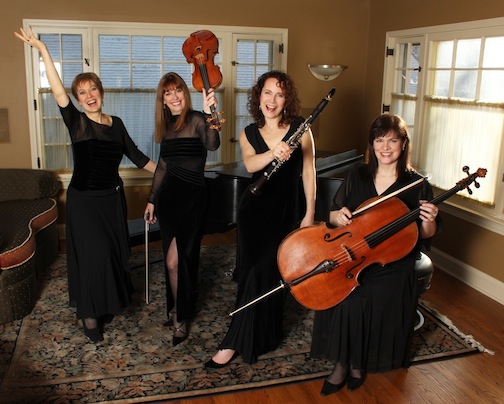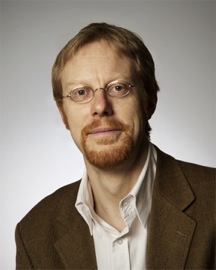Huydts premiere, Prokofiev fare best in varied Orion Ensemble program
Sunday night the Orion Ensemble presented their second season program at the Music Institute of Chicago’s Nichols Hall in Evanston. The group titled its program “Rhapsody,” which suggests a composition written in any irregular form, and the broad spectrum of works represented was indeed far from “regular.” Ranging from arrangements of standard favorites, to a little-known nineteenth-century quartet and a world premiere, each individual work offered isolated high points.
Opening the night was Lyric Opera violinist Peter Labella’s arrangement of George Enescu’s Romanian Rhapsody No. 1. The work was retooled for the core members of Orion—a quartet of clarinet, violin, cello and piano, the same instrumentation of Messian’s Quatour pour la Fin du Temps.
Labella’s take on Enescu’s warhorse was tongue-in-cheek, imbuing the oft-performed symphonic showpiece with jazzy harmonies and other quirks not found in the original score. Still, after a lush opening cello solo from Judy Stone, the rest of the performance felt flat and monochromatic. The work’s many different sections were undifferentiated in terms of character and the players seemed buried in their scores, the performance lacking a sense of build or progression.
The evening continued with the world premiere of Chicago composer Sebastian Huydts Trio for Violin, Cello, and Piano, subtitled “For Elise.” Huydts described the work as an “expansive elegy,” written in honor and memory of his close friend Elise Mann who succumbed to breast cancer last year. (Orion dedicated the performance to all women who have survived or are still suffering from the disease.)
The work’s lengthy opening movement launches with a theme reminiscent of the opening of Brahms Piano Quintet—also in the same key—which is then elaborated upon in different tempi, harmonic settings, and instrumental textures. The three members of Orion deftly navigated the work’s many shifts in mood. A pulsating rhythmic piano ostinato from Diana Schmück obsessively rumbled under fragmented string lines, as quasi-jazzy/Impressionist sections with static harmonic motion created a feeling of suspension, and pyrotechnic passages in the strings were whipped off effortlessly. The players generated a strong sense of angst and ambivalence evocative of the conflicting emotions one can experience when encountering death firsthand, in a performance rich with vulnerable pathos.
Following the Huydts was something completely different—a rarely heard Clarinet Quartet by German composer Iwan Müller (1786-1854). Reminiscent of Mozart’s quartets for flute and string trio, the piece lacked Mozart’s touch of genius but not his capacity to charm. As in those more familiar works, the wind instrument had a leading role. The aria-like slow movement was sung tastefully yet elsewhere clarinetist Kathryne Pirtle’s imprecise playing—runs started late off of ties, cadential trills held too long, grace notes short and clipped—-sounded disengaged from her accompanying colleagues. All of this robbed the work’s fast outer movements of their potential elegance.
After intermission cellist Stone offered a sensitive reading of Rachmaninov’s Vocalise before violinist Florentina Ramniceanu and guest violinist Stephen Boe offered up the evening’s high point: Sergei Prokofiev’s infrequently performed Sonata for Two Violins.
Written in the form of a Baroque sonata da chiesa (literally “church sonata”), the pair of violinists paid careful attention to the alternating passages of dense dissonance and relative harmonic calm in the slow movements, landing on haunting, ethereal, pitch-perfect unisons after thick contrapuntal passages. They effectively imbued the work’s intense, driving fast movements with the neurotic abandon and frenetic flair typical of the composer.
The evening came to a close with a second iteration of Enescu’s Romanian Rhapsody, this time arranged for a complement of five players (Orion’s core plus Boe, this time on viola) by composer Ilya Levinson. This version stayed truer to Enescu’s original score and, perhaps because of this added familiarity, the ensemble created a greater sense of joy and abandon than they mustered for Labella’s more satiric version, closing the evening in ebullient fashion.
The program will be repeated 7 p.m. Sunday November 30 at First Baptist Church in Geneva, and 7:30 December 3 at Sherwood Community Music School. orionensemble.org; 630-628-9591.
Posted in Performances






